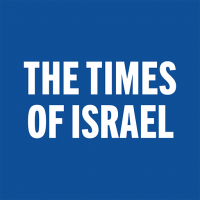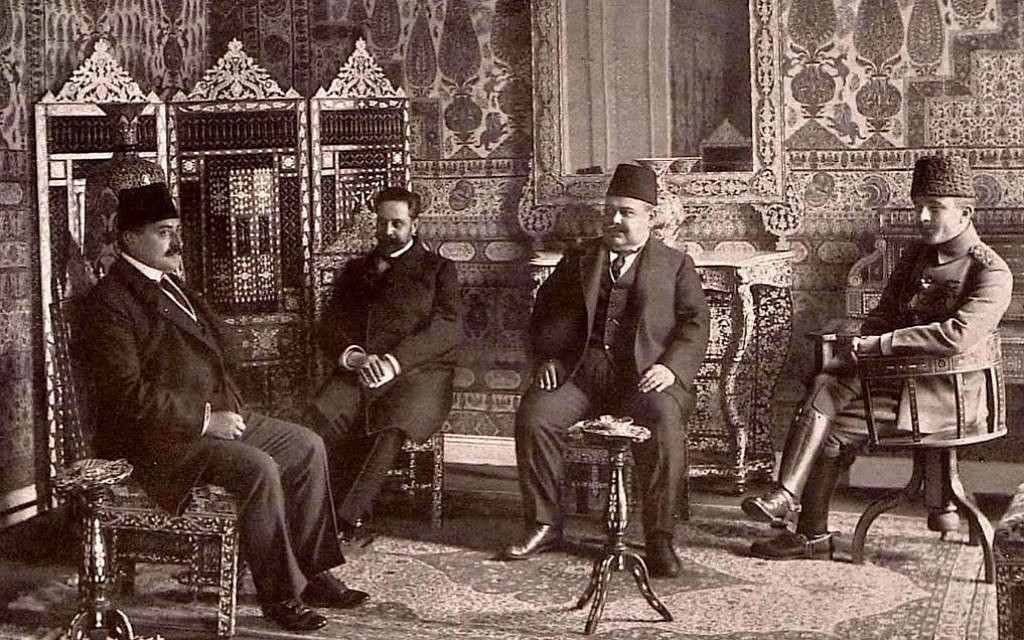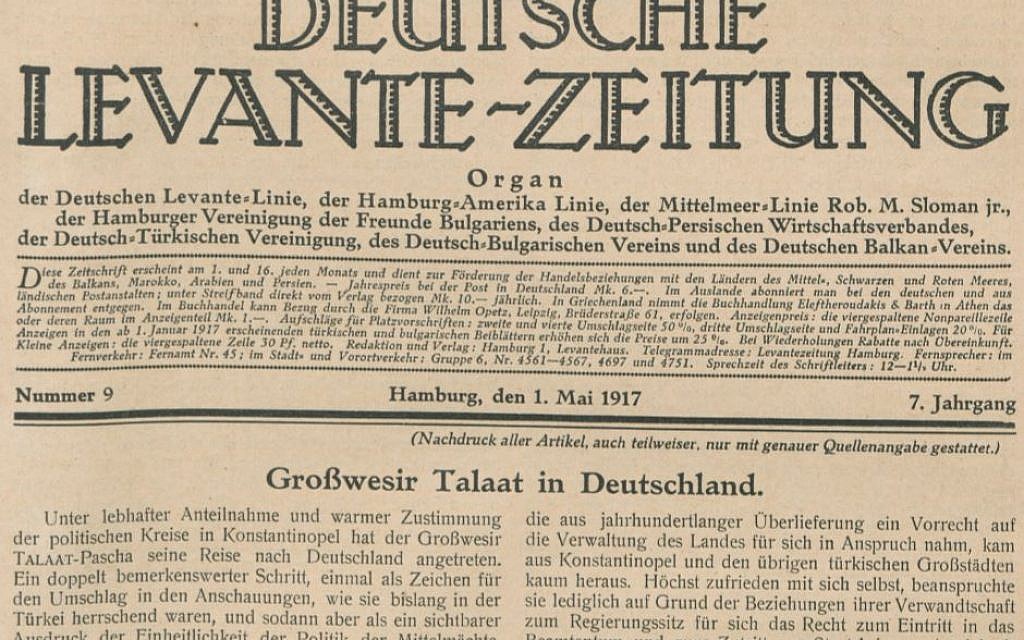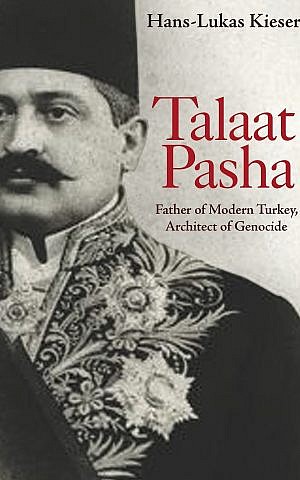Author Hans-Lukas Kieser says a desperate Zionist press praised the empire even during the slaughter of its minority population, a murder which Israel continues to gloss over today

www.timesofisrael.com
Извадоци:
This past June, a scheduled Knesset vote to recognize the World War I killings of Armenians as genocide was
canceled due to a lack of government support.
...
Prof. Hans-Lukas Kieser ... recently published the book,
“Talaat Pasha: Father of Modern Turkey, Architect of Genocide.”
The political biography explores how Mehmed Talaat, more commonly known as Talaat Pasha, almost single-handedly masterminded the Armenian genocide.
Kieser’s book, over 400 pages long, makes for tough reading at points — especially as the historian recollects the systematic murder of Armenian Christians. He notes, for example, that the “removal of Armenians from Eastern Asia Minor mainly took place from May to September 1915, where women and children endured starvation, mass rape, and enslavement on their marches [towards death].”
Kieser says a great number of villages in northern Syria became an “arena of mass crimes” in 1915, where Armenian civilians — who were considered “fair prey” — “were raped, abducted, and murdered en masse without any protection, or punishment for the offenders.”
Israel’s recent decision to continue to remain silent on the 103-year-old genocide has garnered its share of criticism from historians, academics, writers and human rights activists — many from within Israel itself.
Prof. Yehuda Bauer, a leading Israeli historian and an academic adviser to the Yad Vashem Holocaust museum in Jerusalem, said in a June radio interview that the Israeli parliament’s failure to recognize the Armenian genocide was a
“betrayal.”
Benjamin Abtan, the president of the European Grassroots Antiracist Movement (EGAM) and the coordinator of the Elie Wiesel Network of Parliamentarians of Europe, in an
article published in Haaretz in June claimed that
Israel had “a particular responsibility in recognizing the Armenian genocide [to] ensure mass atrocities [were prevented] in the future.”
According to Kieser, recognizing the Armenian genocide holds a relevance for Israelis today beyond the usual discussion of Israel-Turkey relations. Jews, he says, historically played a key role in promoting propaganda from the Ottoman side as Armenians continued to be slaughtered.
The historian says that Talaat enjoyed “particularly good Jewish press” in Istanbul and abroad” during the period surrounding the genocide — notably in Germany, where newspapers like Deutsche Levante-Zeitung praised Talaat as “an outstanding leader” and the “savior of imperial Turkey.”
Although this glorification smacked of propaganda and lies, Kieser claims many Germans bought into the words of the Jewish press at the time and were affected by its corrosive logic.
A pro-Talaat Pasha article in the Zionist newsletter, the Deutsche Levante-Zeitung. (Courtesy University of Princeton Press)
The historian recalls how many Jews loyal to the Ottomans largely looked the other way where the suffering of Armenians was concerned. This included figures such as
Alfred Nossig, who helped found both the General Jewish Colonization Organization (AJK) and the Zionist Organization (ZO).
Both were set up for the purpose of Jewish lobbying across the Middle East and elsewhere, and subsequently encouraged intimate relations between Jews and Ottomans.
However, Kieser is keen to emphasize that some historical context is needed.
This was a crucial turning point in Jewish history — before the Balfour Declaration was announced in 1917. Jews were looking for diplomatic favors — from a myriad of countries — wherever they could find them, in the hopes of securing Zionism’s ultimate end goal: a Jewish state in Palestine.
“The Jewish Question” involved Jews jostling for political favors from the Ottomans, who still held considerable sway in the Middle East. But the power dynamics also worked the other way too, the historian explains.
“Talaat’s relationship with Jews during this time gave him considerable international leverage that he successfully used to deflect attention from Armenia,” Kieser says.
“In spring 1915 — which was a honeymoon for the Zionists in Istanbul — Talaat made sure there were no conflicting issues internationally because he wanted to strike the Armenians,” says Kieser. “Jews feared they would suffer the same fate as the Armenians, so they in no way welcomed any pro-Armenian or pro-victim activity [reporting] because they feared for themselves.”
“Unfortunately, the silence carried on many decades after the war. So you had Jews in Israel and the Jews in Turkey who continued to help Turkey deny the Armenian genocide,” Kieser says.
Kieser makes a point in the book of comparing the Armenian genocide with the Holocaust, and finds some similarities.
“Imperial cataclysm and a particular combination of circumstances in the first months of WWI made the Armenians an obvious target,” he writes.
He goes on to state, “Actors from the top and below, extremist ideas, entrenched prejudices, and material incentives colluded in the brute destruction [of the Armenians].”
A little more than two decades later, Europe’s Jews were to experience “an analogous situation,” he observes.
“
Who, after all, speaks today of the annihilation of the Armenians?” Hitler asked his generals in his infamous
Obersalzberg speech on August 22, 1939 — just days before Germany’s invasion of Poland.
‘Talaat Pasha: Father of Modern Turkey, Architect of Genocide,’ by Hans-Lukas Kieser. (Courtesy Princeton University Press)






